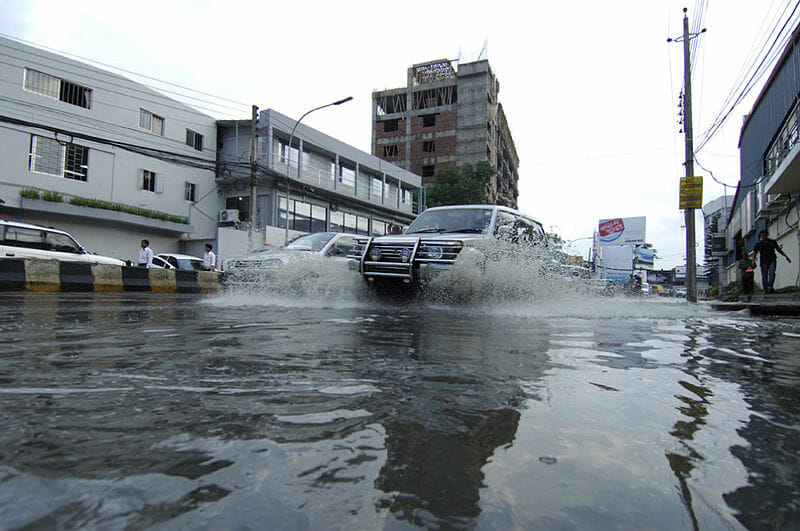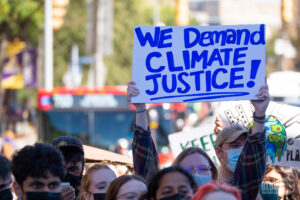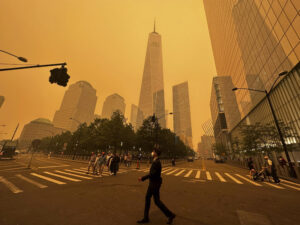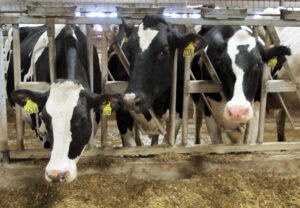Homeless Bangladeshis Brace for Floods
As the monsoon season begins, the country is already experiencing some of the fastest-recorded sea level rises in the world, according to a report by the U.K.'s Environmental Justice Foundation. Wikimedia Commons
Wikimedia Commons
As another monsoon season begins, huge numbers of homeless Bangladeshis are once again bracing themselves against the onslaught of floods and the sight of large chunks of land being devoured by rising water levels.
Bangladesh, on the Bay of Bengal, is low-lying and crisscrossed by a web of rivers: two thirds of the country’s land area is less than five metres [16.4 feet] above sea level. With 166 million people, it’s one of the poorest and most densely populated countries on Earth – and one of the most threatened by climate change.
A recently released report by the Environmental Justice Foundation (EJF) says rises in sea levels caused by climate change could result in Bangladesh losing more than 10% of its land area by mid-century, resulting in the displacement of 15 million people.
The country is already experiencing some of the fastest-recorded sea level rises in the world, says the EJF, a UK-based organisation that lobbies for environmental security to be viewed as a basic human right.
Unpredictable Rains
Increasingly erratic rainfall patterns – linked to changes in climate – are adding to the nation’s problems. Sudden, violent downpours have resulted in rivers breaking their banks and land being washed away.
Rising sea levels mean land and drinking water is contaminated by salt. Farmers are forced to abandon their land and move – many to Dhaka, the capital, one of the world’s so-called megacities, with a population of more than 15 million.
“Bangladesh has a long history of floods, but what used to be a one-in-20-year event is now happening one year in five”, says Saleemul Huq, director of the International Centre for Climate Change and Development in Dhaka. “It is what we would expect with climate change models.”
Farmers further inland are also forced to move to the capital in search of work due to surging rivers eating away their lands. The city’s slums are expanding, and Dhaka’s population is increasing by more than 4% each year.
Farming Abandoned
“We had a small farm – we used to produce peanuts and gourd, corn and sugar all year round”, says one farmer quoted in the EJF report. “Now I collect scraps of work as a labourer.”
EJF says climate change should not be seen only as an environmental issue; climate change is also contributing to a rapidly developing humanitarian crisis, not just in Bangladesh but in many other regions around the world.
“It is countries like Bangladesh, and people like those we met, whose contributions to climate change have been among the smallest, that are now facing the worst impacts”, says Steve Trent, EJF’s executive director.
“We must act now to prevent this becoming a full-scale humanitarian crisis.”
In recent months more than 600,000 people – Rohingya refugees from violence in neighbouring Myanmar – have set up shelters in southern Bangladesh. There are fears that this community could also be under threat during the monsoon period.
The EJF report highlights how women in Bangladesh are especially vulnerable to climate-related disasters. In 1991 a cyclone which swept across the Bay of Bengal caused the deaths of 140,000 people and forced 10 million to leave their homes.
EJF says 90% of the dead were women; their lower status means they are often not taught survival skills. Women also tend to stay with children and other family members when disaster strikes.
Those women who do migrate find it more difficult to adapt to life in a Dhaka slum or elsewhere. Some become victims of trafficking, ending up in brothels in India.
Foreign Migration Grows
EJF says that while most climate migration is internal, there are indications that growing numbers of Bangladeshis are seeking to move outside the country. It says that in early 2017 there was a particularly big surge in the number of Bangladeshi migrants arriving in Italy after completing the perilous journey by land and sea from their homeland.
EJF is calling for the creation of an international legally binding agreement for the protection of climate refugees. The EU should take the lead in this process, it says.
“There should be clarifications on the obligations of states to persons displaced by climate change, with new legal definitions”, says EJF.
“Definitions of climate-induced migration are urgently needed to ensure a rights-based approach and give clarity to the legal status of ‘climate refugees’; these must be developed without delay.”
Your support matters…Independent journalism is under threat and overshadowed by heavily funded mainstream media.
You can help level the playing field. Become a member.
Your tax-deductible contribution keeps us digging beneath the headlines to give you thought-provoking, investigative reporting and analysis that unearths what's really happening- without compromise.
Give today to support our courageous, independent journalists.






You need to be a supporter to comment.
There are currently no responses to this article.
Be the first to respond.